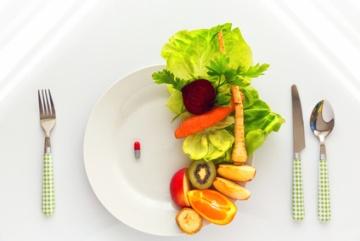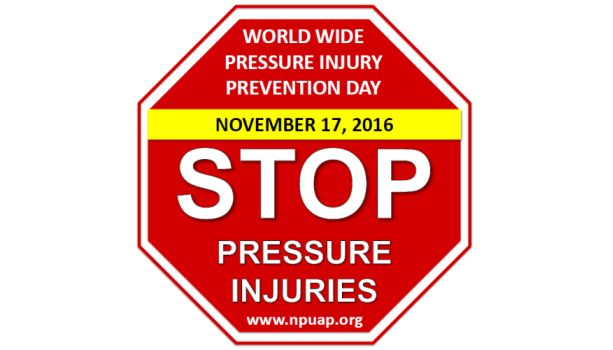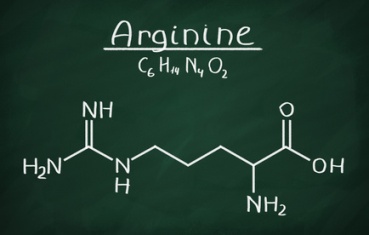Let Food Be Thy Medicine and Medicine Be Thy Food: 2016 WUWHS Update
December 1, 2016
The World Union Wound Healing Society (WUWHS) held their 2016 meeting in historic Florence, Italy in September. The initial meeting of the WUWHS was held in Australia in 2000 and is convened every four years. I have had the unique opportunity to present in Paris, Toronto, Yokohama and this year in Florence on the topic of nutrition and wound healing. 4,226 clinicians attended the conference including 525 from the US. The convention center was a modern venue surrounded by the ancient walls of the Roman fortress.
An Integrated Approach to Nutrition and Pressure Ulcers
The five-day scientific program was packed with workshops and symposia plus a huge exhibition hall touting all of the newest products and services related to all aspects of wound care. Sisters Societies such as the International Compression Club, International Society for Pediatric Wound Care, Brazilian Society of Nursing in Wounds and Aesthetics, International Skin Tear Advisory Panel, Alliance of Wound Care Stakeholders and several other societies held workshops prior to the opening session on Sunday night. The trend noted in most of the sessions was placing the patient at the center of care and noting all the obstacles patients encounter regardless of their physical location (country, urban or rural) or care setting (acute, home care or clinic), as well as health economy or cost of care.
The "Nutrition in Wound Healing: Special Focus on Pressure Ulcers" symposium was led by Dr. Jos M.G.A. Schols from the Netherlands. He opened the session with a story of wounds and nutrition which focused on integrated nutritional care for patients with pressure ulcers. He noted that nutritional status is one of the intrinsic factors of pressure ulcer development that can be readily influenced, especially for malnourished individuals but also for non-malnourished individuals who may require supplementation to their current diet. Providing sufficient nutritional care requires both adequate and multidisciplinary nutritional care. Schols set the stage for the symposium with Hippocrates' quote, "Let food be thy medicine and medicine be thy food."
Lubos Sobotka from the Czech Republic spoke on the connection between nutrition, inflammation and the pathophysiology of pressure ulcers. My blogs over the years have also noted how the inflammatory process, triggered by wounds or malnutrition, contributes to protein catabolism and thus increases the need for energy and protein consumption. Sobotka stated the inflammation also leads to loss of appetite, which further reduces food intake and extends malnutrition and sarcopenia. Sarcopenia leads to immobilization and to a further increased systemic inflammation and catabolic reaction, thus nutritional support must satisfy the nutritional goals of the individual. The international guidelines recommend an increase in protein and calories for individuals at risk of malnutrition and/or with pressure ulcers.
Aligning Nutrition and Wound Management
Ruud Halfens from the Netherlands explained the results of the 2013 and 2014 Dutch National Prevalence Measurement of Care Problems (LPZ). LPZ is an international audit of the prevalence of care problems in different health care sectors using identical methodologies. The measurement tool includes care issues such as falls, incontinence, pressure ulcers and malnutrition. Pressure ulcers were assessed by a pair of caregivers according to the definition of the EPUAP. Malnutrition was assessed by low body mass index (BMI), undesired weight loss and decreased nutritional intake. In the Netherlands, the study has proven its value and has lead to an increased awareness of care problems among health care workers in individual institutions. As a result, several institutions have started to improve their quality of care.
My presentation included a case study illustrating how an individual's course of treatment aligned with the 2014 NPUAP, EPUAP, and PPPIA International Guidelines. The guidelines follow an algorithm of care designed to assist the clinician to develop a comprehensive individualized plan. The steps include:
- Screen and assess at admission and with condition change.
- Provide 30-35 kcalories/kg body weight daily for adults at risk of a pressure ulcers or with a pressure ulcer.
- Revise or liberalize the diet restrictions when appropriate.
- Offer fortified foods and/or high calorie supplement between meals.
- Provide 1.2-1.5 grams protein/kg body weight daily for those at risk of a pressure or with existing pressure ulcers.
- Supplement with high protein, arginine, and micronutrients for Stage/Category III or IV or in case of multiple pressure ulcers, when nutritional requirements cannot be met with traditional supplements.
- Provide adequate hydration plus additional hydration for certain conditions;
- Encourage a balanced diet. When intake is poor, consider a multivitamin or mineral supplement.
- Consider enteral or parenteral nutrition support when oral intake is inadequate. Nutrition support must be compatible with individual's goals.
Emanuele Cereda from Italy related the findings from The OligoElement Sore Trial (OEST) a large randomized study performed to investigate whether an oral nutritional supplement enriched with arginine, zinc and antioxidants was beneficial to the healing of pressure ulcers. 200 malnourished patients with pressure ulcers were randomized to receive an energy-dense, protein-rich oral formula enriched with arginine, zinc, and antioxidants (400 mL/day) or an equal volume of an isocaloric, isonitrogenous formula for 8 weeks. The study reached the primary endpoint, demonstrating patients receiving the enriched formula had a higher percentage of pressure ulcer reduction in a shorter period of time than those who received the standard formula. The trial included an economic evaluation, which resulted in the supplementation with the enriched-formula reducing the costs of local pressure ulcer care.
Jacques Neyens from the Netherlands received the Rising Star award. Rising Star was a new award given to an abstract of great interest for each of the scientific topics. Neyens abstract was titled "The effects of an arginine enriched oral nutritional supplement on other chronic wounds; results of a case series." His presentation sparked the interest of many participants who were considering research in the area of nutrition and wounds.
About The Author
Mary Ellen Posthauer RDN, CD, LD, FAND is an award winning dietitian, consultant for MEP Healthcare Dietary Services, published author, and member of the Purdue University Hall of Fame, Department of Foods and Nutrition, having held positions on numerous boards and panels including the National Pressure Ulcer Advisory Panel and the American Dietetic Association's Unintentional Weight Loss work group.
The views and opinions expressed in this content are solely those of the contributor, and do not represent the views of WoundSource, HMP Global, its affiliates, or subsidiary companies.










